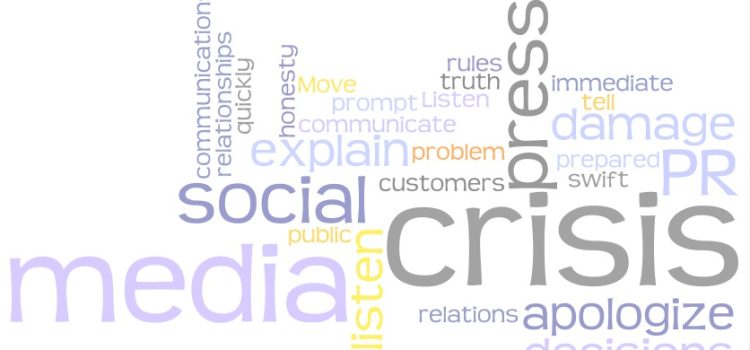
Introduction
In today’s digital world, having a solid social media marketing service is no longer optional—it’s a must. Customers spend hours each day on platforms like Facebook, Instagram, LinkedIn, and TikTok. To stand out, businesses need more than just a single post here or there. They need a complete set of social media services that includes planning, content creation, community engagement, advertising, and performance tracking. In this article, we’ll break down the key services your business really needs to succeed on social media. By the end, you’ll know exactly where to invest time and budget to grow your brand online.
Rise of Social Media Marketing Services
Over the past decade, social media marketing services have evolved from basic profile setup into full-scale marketing engines. In the early days, businesses simply posted updates on Facebook or Twitter. By 2025, brands rely on a wide array of services—content planning, paid advertising, influencer partnerships, community management, and detailed analytics. This shift happened because user attention moved online, and social channels became central to everyday life. Today, specialized agencies and in-house teams offer tailored service packages so companies can engage audiences across multiple platforms with a clear strategy.
Benefits of a Social Media Marketing Service Breakdown
Breaking down social media marketing into distinct services gives businesses clear choices and better results. Instead of buying a broad package, a company can invest in only the areas it needs most—such as boosting posts, creating video content, or managing comments. This targeted approach saves money and ensures that each dollar spent directly supports a specific goal, like increasing followers or driving website traffic. Detailed reporting for each service helps teams understand what works, so they can refine tactics, improve performance, and demonstrate real return on investment.
Role of Social Media Marketing Services
Each service in a social media marketing plan plays a unique role. Content creators develop engaging posts—images, videos, or blog links—that reflect the brand’s voice. Paid ad teams set up and optimize campaigns to reach the right audience by age, interest, or location. Community managers respond to comments and messages, building trust and loyalty with real conversations. Data analysts track engagement metrics, conversion rates, and growth patterns, providing insights that guide future campaigns. Together, these services work in concert to build brand awareness, nurture customer relationships, and drive sales.
Top Social Media Marketing Service Breakdown
1. Strategy Development
Why It Matters
A clear strategy lays the foundation for everything you do on social media. Without it, your efforts can feel disjointed and ineffective.
Key Components
- Goal Setting: Decide if you want more brand awareness, website traffic, or sales leads.
- Audience Research: Identify your ideal customers: their age, interests, and online habits.
- Platform Selection: Choose the right channels—Instagram for visuals, LinkedIn for B2B, TikTok for younger audiences.
- Content Pillars: Define themes like product highlights, customer stories, and industry tips.
Deliverables
A good social media strategy comes with a detailed plan, a content calendar, and clear metrics for success.
2. Content Creation
Why It Matters
High-quality content is what attracts and retains followers. It helps you tell your brand story and showcase your products or services.
Key Services
- Graphic Design: Branded templates, infographics, and promotional graphics.
- Photography & Video: Product photos, behind-the-scenes clips, and short-form videos (Reels, TikToks).
- Copywriting: Engaging captions, call-to-action messages, and hashtag research.
- Blog Integration: Teasers and links to blog posts or articles on your website.
Deliverables
Expect a mix of static posts, carousel images, Stories, and short videos—packaged with on-brand visuals and compelling text.
3. Community Management
Why It Matters
Engaging with your audience builds trust and loyalty. It shows you care about customer feedback and questions.
Key Services
- Comment Moderation: Responding to comments quickly and professionally.
- Direct Message Management: Handling inquiries, complaints, and collaboration requests.
- Review Monitoring: Tracking and responding to reviews on Facebook, Google, and industry-specific sites.
- Community Building: Hosting live Q&A sessions, polls, and user-generated content campaigns.
Deliverables
A responsive presence that turns social channels into two-way conversations, not just broadcast outlets.
4. Paid Advertising
Why It Matters
Organic reach is limited. Paid ads let you target specific audiences with precision and scale your results.
Key Services
- Ad Strategy: Choosing campaign objectives like clicks, conversions, or video views.
- Audience Targeting: Custom audiences based on demographics, interests, and behavior.
- Ad Creation: Designing ad graphics, writing headlines, and setting calls to action.
- Budget Management: Allocating daily or lifetime budgets, adjusting bids for best ROI.
- A/B Testing: Running multiple ad variations to see what works best.
Deliverables
Trackable, scalable ad campaigns that drive website visits, lead generation, or product sales.
5. Influencer Partnerships
Why It Matters
Influencers bring authenticity and new audiences. A trusted recommendation can boost trust and sales.
Key Services
- Influencer Research: Finding influencers whose followers match your target audience.
- Outreach & Negotiation: Securing posts, stories, or video shout-outs within your budget.
- Content Collaboration: Co-creating branded content that fits both the influencer’s style and your brand voice.
- Performance Tracking: Measuring engagement and referral traffic from influencer posts.
Deliverables
Authentic campaigns that leverage influencers’ creativity and fan loyalty to expand your reach.
6. Analytics and Reporting
Why It Matters
Data shows what’s working and what needs improvement. Without it, you’re guessing.
Key Services
- Metric Tracking: Followers, reach, engagement rate, clicks, and conversions.
- Custom Dashboards: Visual reports that highlight key performance indicators.
- Insights & Recommendations: Monthly reviews with actionable advice to optimize campaigns.
- Competitive Analysis: Benchmarking your performance against industry peers.
Deliverables
Regular reports that guide strategy tweaks and budget decisions with clear, numbers-driven insights.
7. Social Listening and Reputation Management
Why It Matters
Monitoring brand mentions and industry conversations helps you spot trends, crises, or opportunities before they escalate.
Key Services
- Mention Monitoring: Tracking your brand name, products, and key hashtags.
- Sentiment Analysis: Gauging positive, neutral, or negative mentions in real time.
- Crisis Response: Having a plan for rapid response to negative publicity.
- Trend Identification: Discovering emerging topics your audience cares about.
Deliverables
A proactive approach to protecting and enhancing your brand’s reputation online.
8. Training and Support
Why It Matters
In-house teams need the right skills and tools to manage daily social media tasks.
Key Services
- Workshops: Focused sessions on platform best practices and new features.
- Tool Training: Guidance on scheduling tools, analytics platforms, and design software.
- Ongoing Support: Access to experts for questions or troubleshooting.
- Documentation: Playbooks and guides tailored to your brand’s processes.
Deliverables
An empowered team that can maintain quality social media activities even between agency check-ins.
Putting It All Together: Tailored Packages
Every business is different. A strong social media marketing service provider will offer customizable packages that combine these services based on your needs and budget. For example:
- Starter Package: Strategy, basic content creation, and monthly reporting.
- Growth Package: Adds community management, paid ads, and influencer outreach.
- Enterprise Package: Includes full analytics, social listening, and dedicated support.
This tiered approach ensures you invest in the right mix of services for your growth stage.
Challenges of Social Media Marketing Services
Even with a clear service breakdown, businesses face ongoing challenges in social media marketing. Platforms constantly tweak their algorithms, making it harder to maintain organic reach. Audiences quickly tire of repetitive or low-quality content, so brands must continually innovate to stay relevant. Measuring true impact can be tricky when sales occur across multiple channels, not just social media. Smaller companies may struggle to allocate enough budget or staff to cover all services effectively. Finally, maintaining consistent brand voice and quality across platforms demands careful coordination and ongoing training.
Future of Social Media Marketing Services
Looking ahead, social media marketing will become even more automated, personalized, and immersive. Artificial intelligence will generate and schedule posts tailored to each audience segment, while machine learning will refine ad targeting in real time. New formats—like augmented reality experiences, shoppable videos, and live-streamed events—will offer richer ways to connect. Social platforms may introduce stricter data-privacy rules, requiring marketers to adapt their strategies to comply with evolving regulations. By breaking services into precise components, businesses can stay flexible and ready to embrace the next wave of social media innovations.
Conclusion
A comprehensive business social media marketing approach combines strategy, engaging content, community engagement, paid advertising, and data-driven insights. By adding influencer partnerships, social listening, and team training, you cover all the bases needed to thrive on social platforms. Whether you’re starting out or looking to scale, the right mix of social media services will boost brand awareness, drive leads, and foster customer loyalty. Evaluate your goals, choose the services that align with them, and partner with experts who can deliver results. With a clear breakdown of essential services, your business is ready to succeed in today’s competitive social media landscape.






















